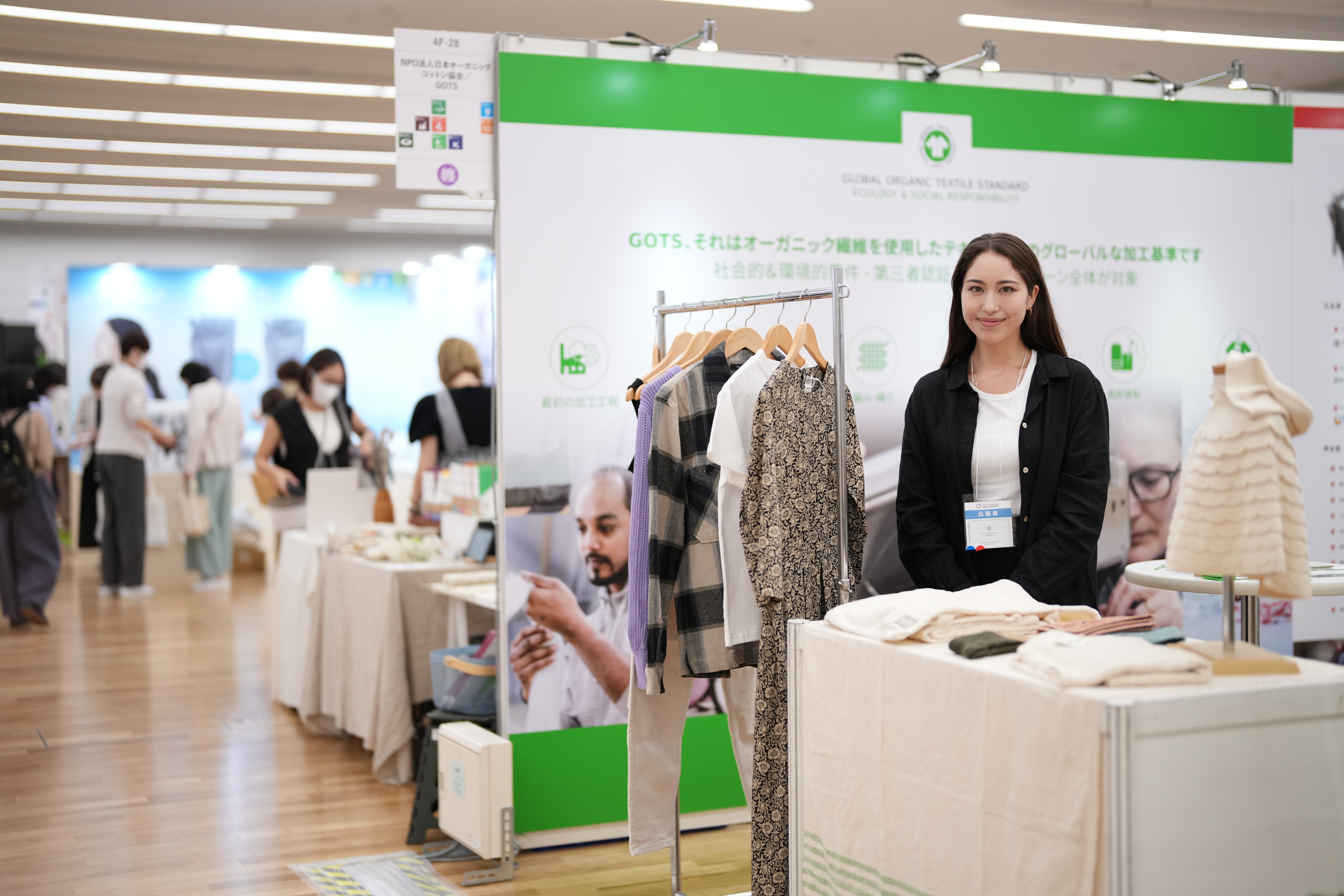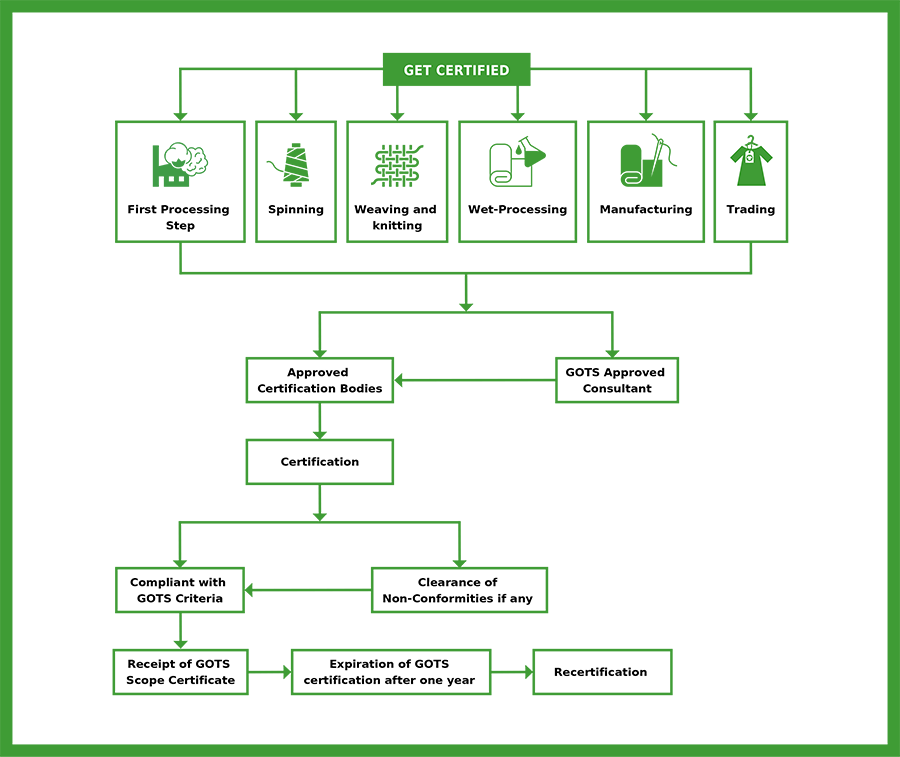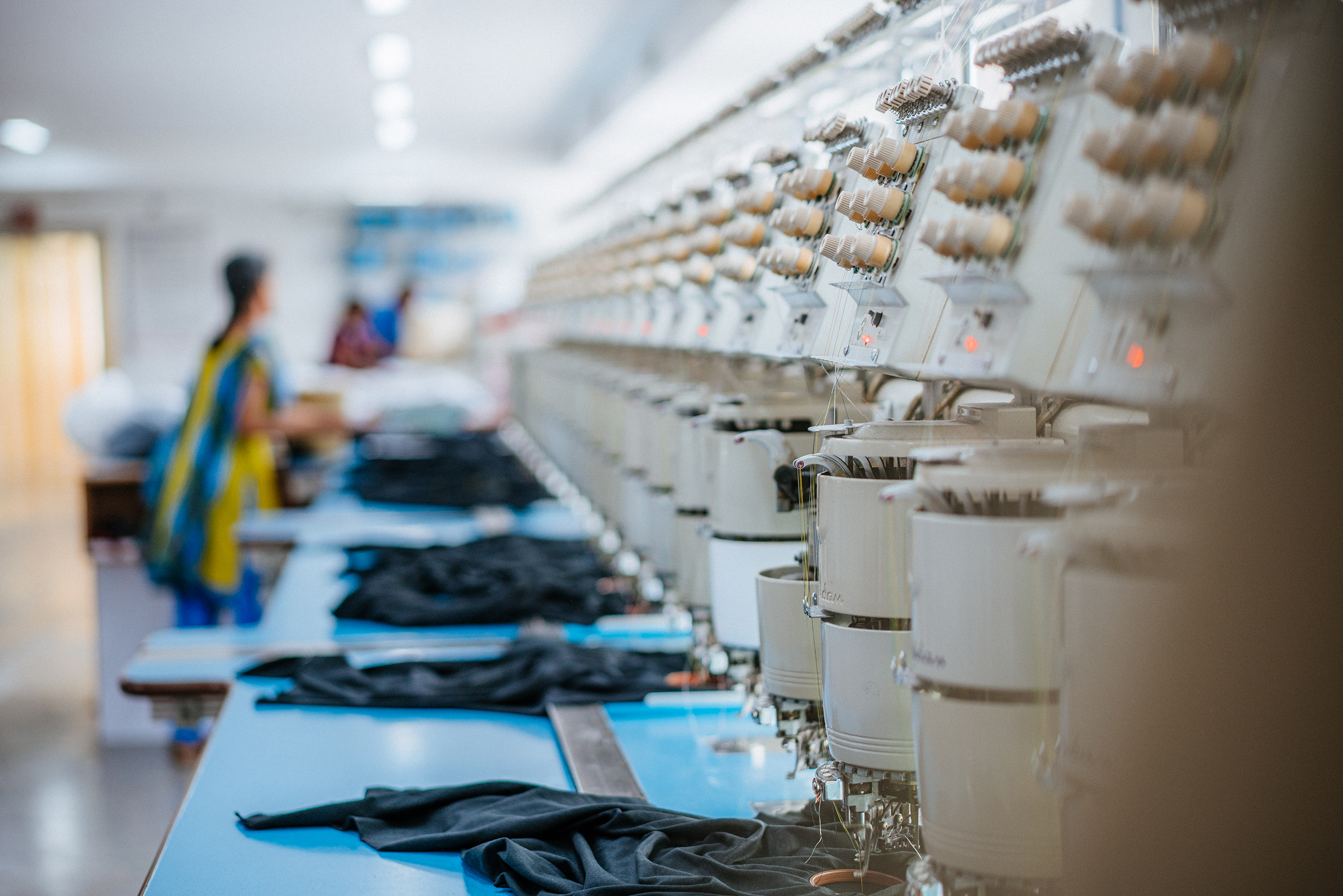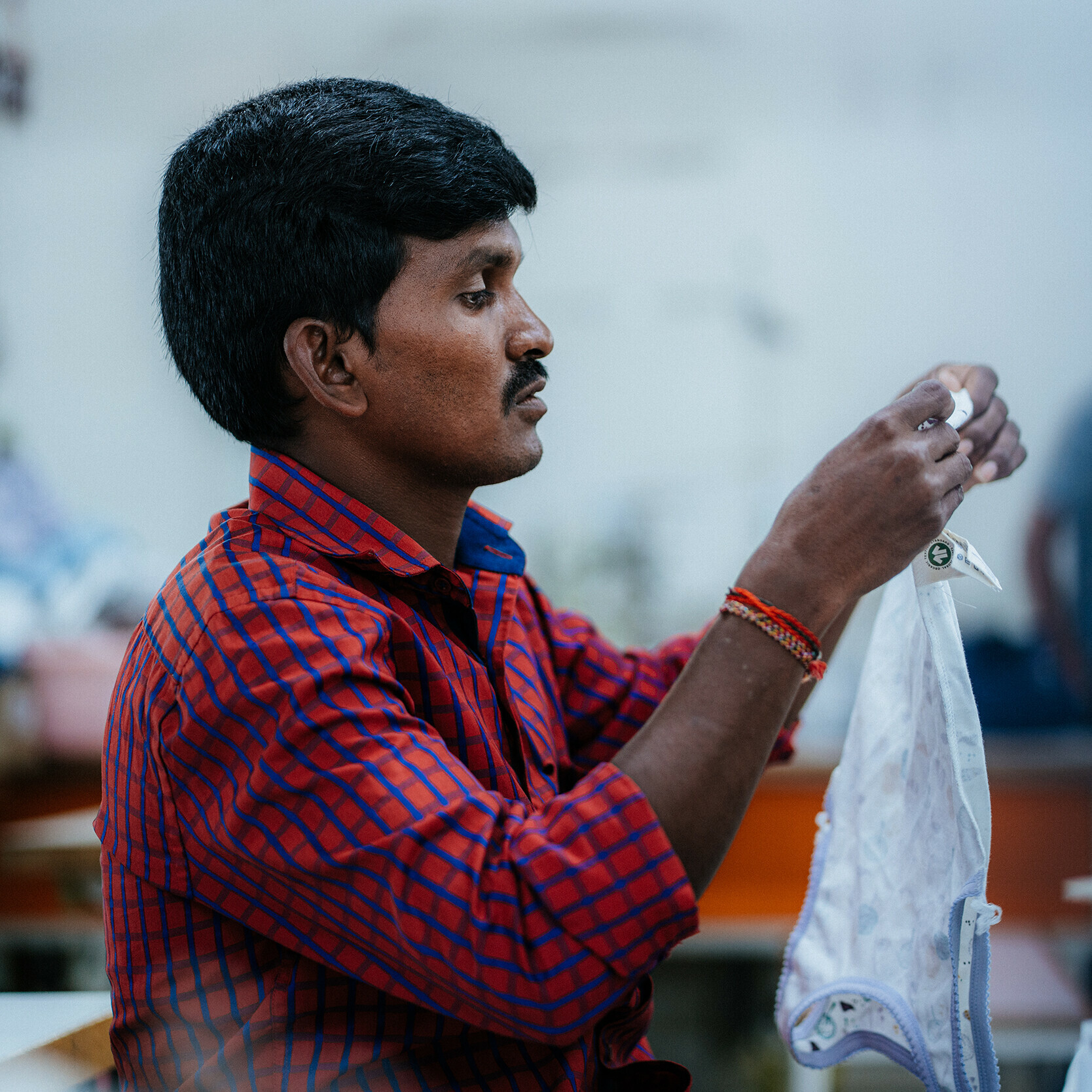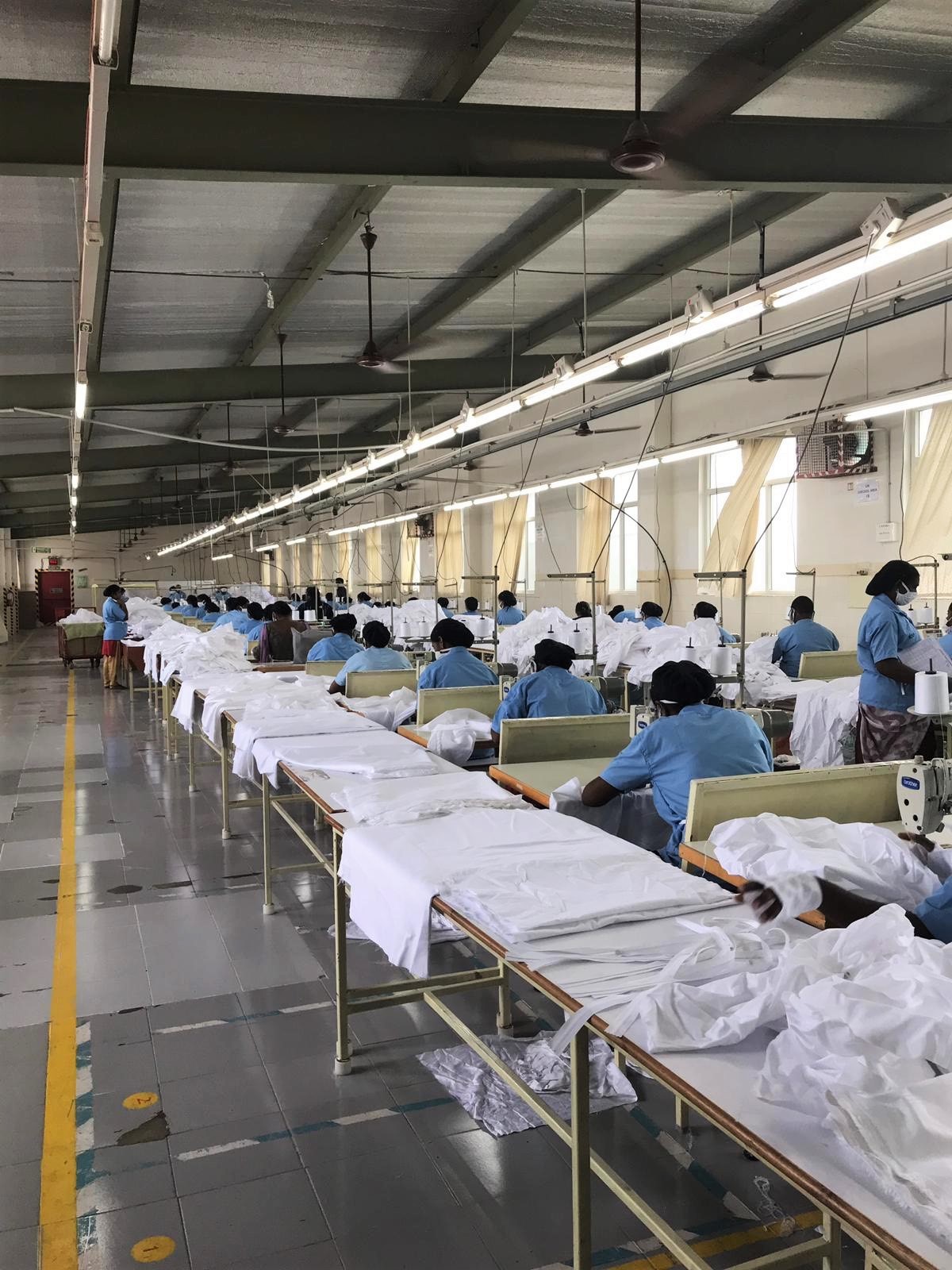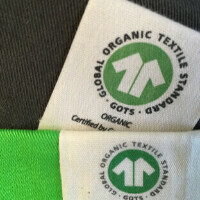The completion of GOTS certification by an approved certifier includes the right to participate in the GOTS programme, including use of the standard and the GOTS logo on its GOTS goods. This section describes the relevant labelling conditions.
How to Get Products Labelled
Anyone who intends to sell, label or represent any textile product with the trademark-registered GOTS logo, with GOTS labelling and/or any other reference to GOTS (certification) must first ensure that they meet the respective criteria and conditions of the Global Organic Textile Standard Programme.
-
Certification Requirements in the Supply Chain
The GOTS quality assurance system requires that beyond the entire processing and manufacturing chain (from post-harvest handling up to sewing, packing and labelling) also B2B traders (traders that sell to other businesses such as importers exporters or wholesalers) must participate in the inspection and certification programme before the final products can be labelled as GOTS certified. This is to ensure a credible and consistent product assurance to end consumers.
Although traders do not modify goods, they buy and sell organic textile products and represent a crucial link for maintaining transparency and traceability in the value chain. The certification of traders is based on verification of their product flow documentation. Certifiers trace the quantity of organic textile products by comparing the amount of purchased with sold GOTS certified textiles to ensure that all products that are sold with GOTS certification claim are correctly certified. The requirement for traders to be certified also ensures that they are aware of the documentation required to verify the authenticity of GOTS certified products thus helping to ensure the integrity of GOTS goods.
Traders that have an annual turnover of less than 20.000 € of GOTS certified goods are exempt from the certification obligation, provided that they do not (re-)pack or (re-)label GOTS Goods. However, such traders must register with an approved certifier and must inform them immediately if their annual turnover of GOTS labelled goods exceeds 20.000 €.
Brand holders and retailers selling GOTS certified final products, which are received, ready packed and labelled directly and exclusively to end consumers, are generally exempt from this certification obligation.
-
Application of the Labelling
The completion of GOTS certification by an approved certifier includes the right to participate in the GOTS programme, including use of the standard and the GOTS logo on its GOTS goods in accordance with the provisions of the GOTS Conditions for Use of GOTS Signs, as long as the certification remains valid.
The GOTS labelling may only be applied to the GOTS Goods and their packaging by a certified entity and must have been approved by the certified entity's approved certifier in advance of its application with the form Labelling Release for GOTS Goods.
In principle the GOTS Label contains the license number of the certified entity which applies the GOTS Labelling. However, a buyer who is a certified entity itself and who wishes the GOTS labelling to be applied by his supplier, may request that the labelling includes its license number: It is possible to trace the identity and other data of a certified entity by entering the license number into the 'free text field' of our Certified Suppliers Database.
-
Correct and Complete GOTS Labelling
For product marking, the GOTS logo must always be accompanied by a reference to the applicable label grade, the approved certifier who certified the marked goods (e.g. certifier's name and/or logo) and the license number of the certified entity. Thus, the labelling will contain the elements shown in the images below.
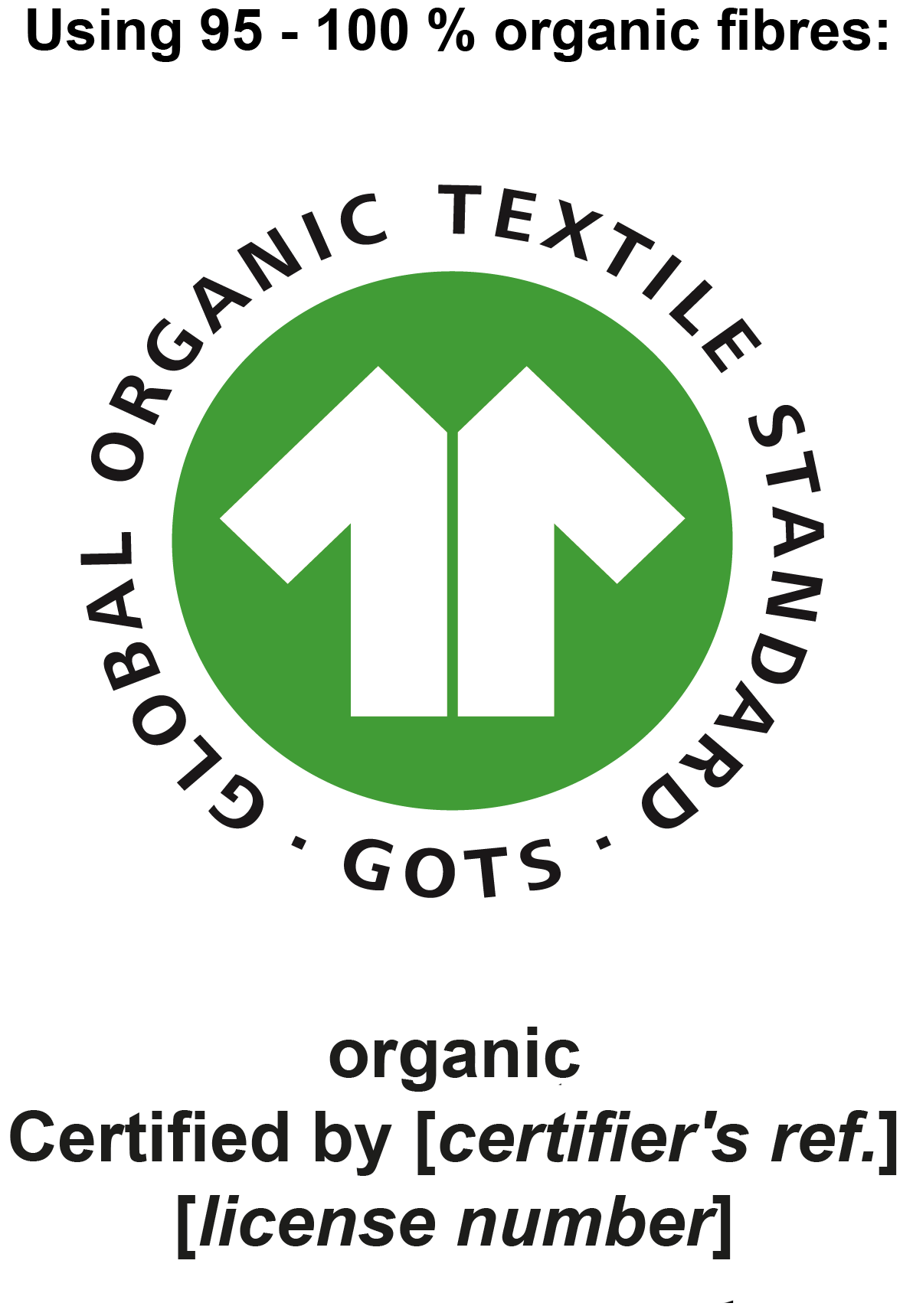
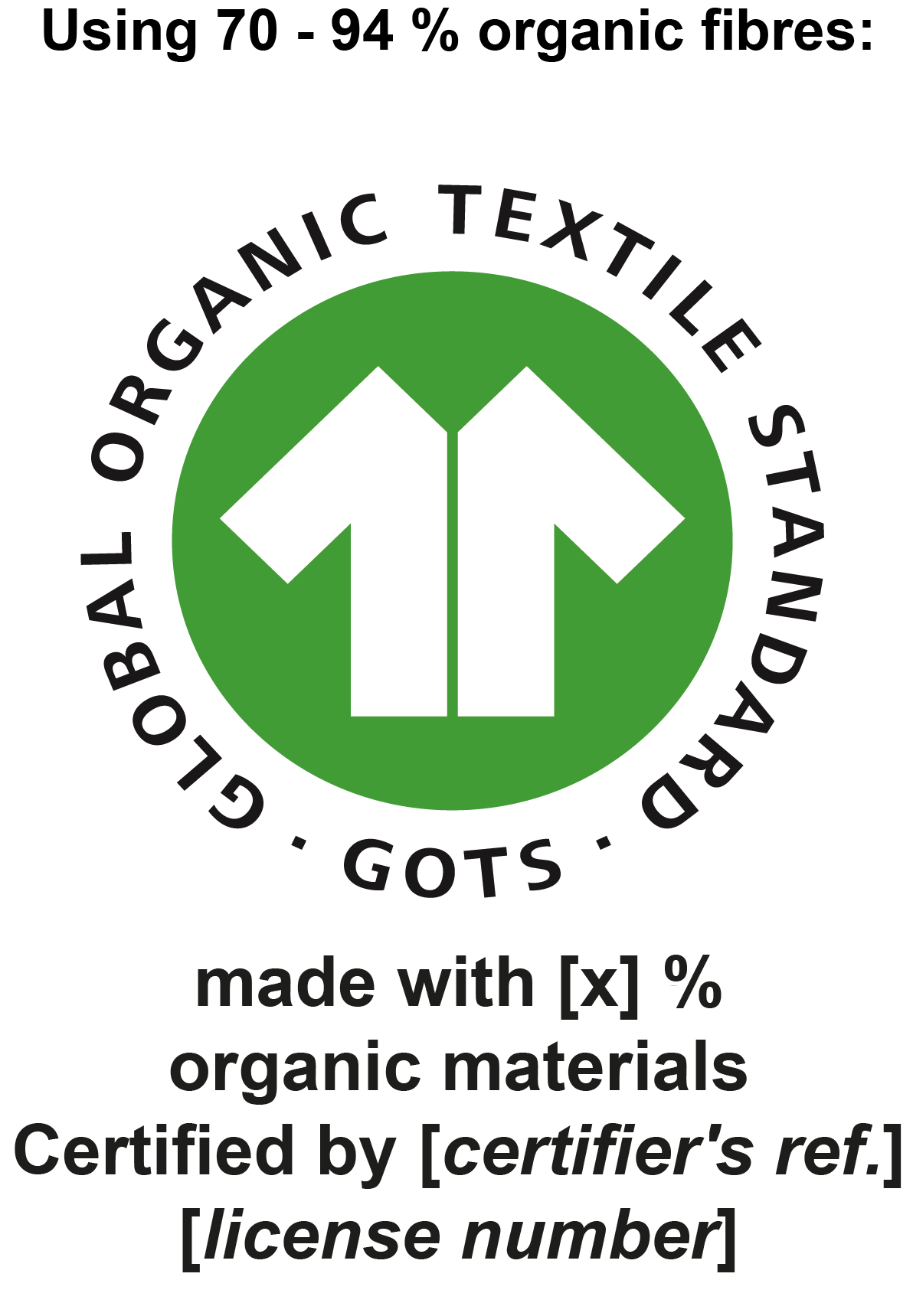
Retailers (including mail order companies) that are not obliged to participate in the GOTS certification system may show the GOTS labelling in catalogues and on web pages, in the same way as is used on the on-product identification of the certified products they purchase/sell. Products which are not legally labelled as described above are not certified and no reference to GOTS must be made. This also applies if only product components, such as the yarn or fabric, were GOTS-certified.
It is a precondition for use of GOTS labelling that the whole value chain and the final product is certified and that the labelling is explicitly approved by a GOTS certifier. Thus, GOTS labelling or referencing with regard to products is also not permitted if an operator in the respective supply chain, which is obliged to be certified (such as a B2B trader), is in fact not certified.
-
Off-Product Logo Use
In addition to its application as identification mark for GOTS Goods, the GOTS logo represents the Global Organic Textile Standard as such. Thus, it may be used in appropriate and unambiguous contexts, such as for informative and advertising purposes by:
- Founding organisations of GOTS
- Approved certifiers referring to their approved status and offering their quality assurance services
- Certified entities, brand holders and retailers with reference to their certified operational status and/or their GOTS goods that are labelled with the GOTS logo. In particular, traders and retailers may only use the GOTS logo or other reference to GOTS (certification) for this purpose if the products they sell carry complete and correct GOTS on-product labelling
- Stakeholders, NGOs, media and other parties that distribute independent (consumer) information
- Approved GOTS consultants referring to their approved status and offering their services
-
Off-Product Logo Use by Suppliers of GOTS Additives
The GOTS organisation now permits the voluntary and limited use of the GOTS logo by suppliers of GOTS Additives. The use of the logo is subject to the payment of an Additives Annual Fee and is strictly limited to off-product publicity material detailed under section 3.4 of the Labelling Guide. Use of the GOTS logo by suppliers of GOTS additives is administered by approved certifiers through the form Labelling Release for GOTS Additives.
-
Fees
In addition to the certification cost, each certified entity must pay an annual fee. As of April 1 2020, the fee is set at 150 € for each facility that is inspected, irrespective of related sales. This fee also covers the right to use the GOTS logo on certified textile products as described above. Fees are collected by the approved certifier and transferred to GOTS.
-
Reference Information
- The complete labelling conditions, including the provisions for product marking and the related design specifications are defined in the Conditions for the Use of GOTS Signs
- Answers to frequently asked questions about labelling can be looked up here.
- Further information about the GOTS certification process is provided in the section How to get certified.
- The GOTS approved certifiers, their local contacts, as well as the countries in which they already have certified GOTS clients are listed here.
-
Protection of the GOTS Programme
The GOTS organisation, under the direction of the GOTS Protection Officer, investigates unauthorised, false or misleading use of the trademark-registered GOTS logo or other claims related to GOTS certification on product declarations, in advertisements, catalogues or other contexts, and takes appropriate action, such as corrective and/or legal action and/or publication of the transgression so as to safeguard the credibility of the GOTS programme and its labelling system.
Conditions for Use of GOTS Signs
The document Conditions for Use of GOTS Signs specifies the conditions for companies participating in the GOTS Programme and defines the corresponding fees. It also sets the requirements for the use of the registered trademark 'Global Organic Textile Standard' (GOTS logo), in order to ensure its correct and consistent application on products and in advertisements, catalogues or other publications. The latest issue of the Conditions for Use of GOTS Signs (version 3.1) was released on 18 October 2021.
How to use GOTS signs, for certified products and in your advertising?
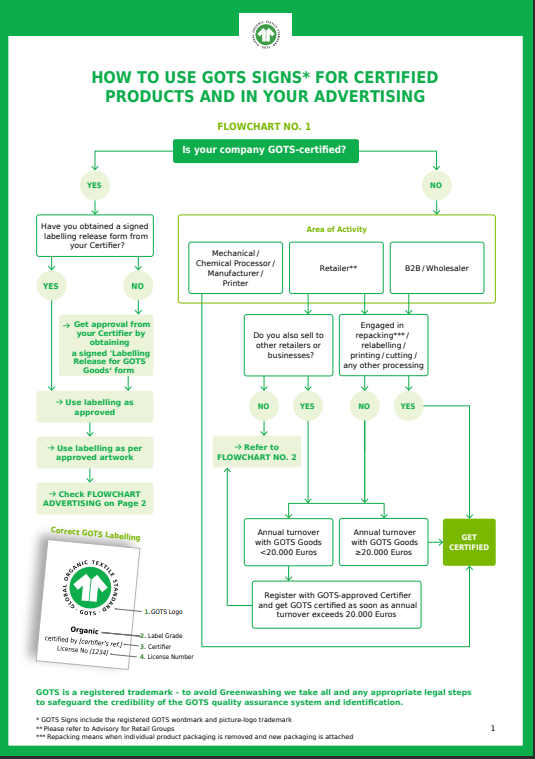
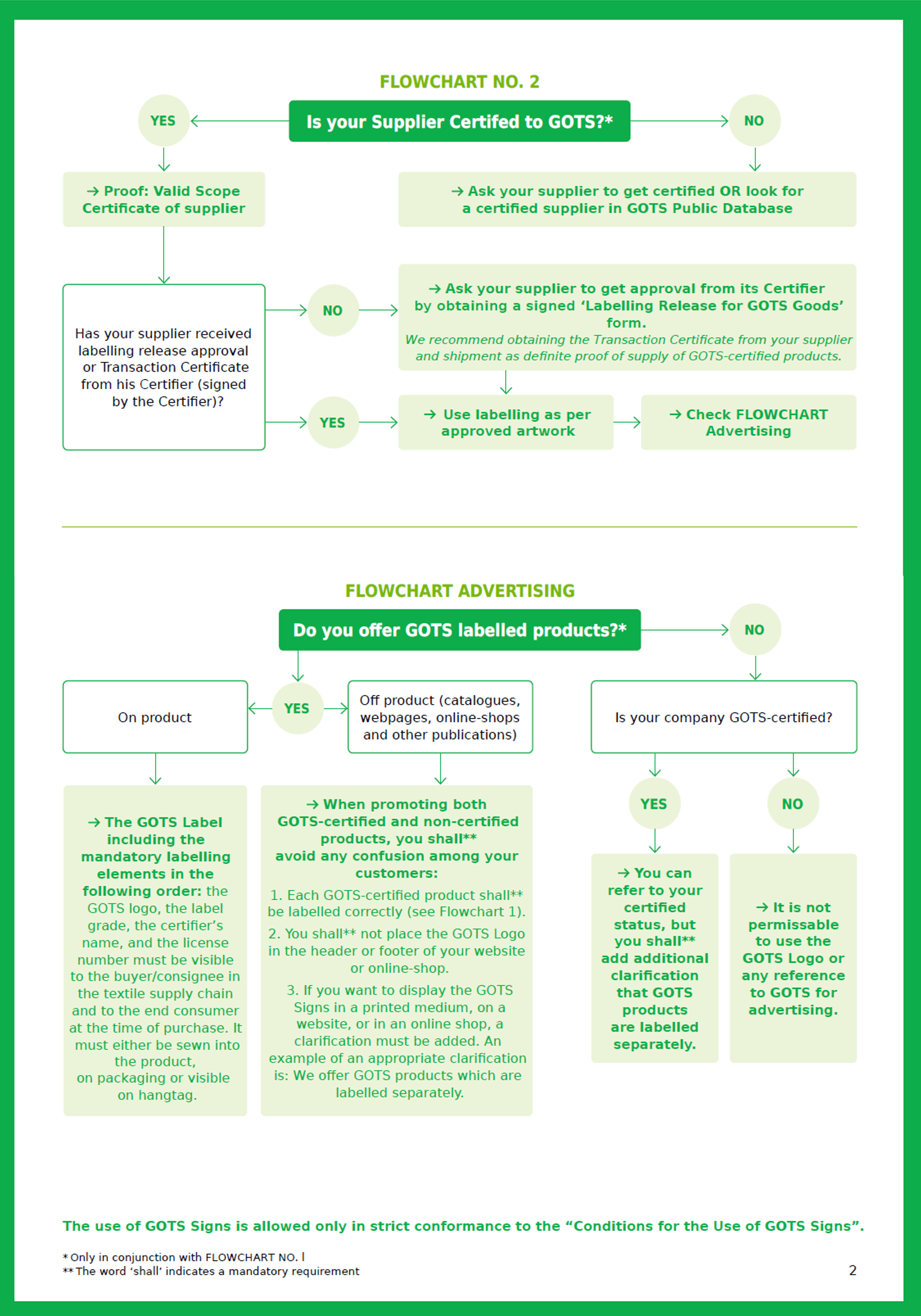
Read more …Labelling

